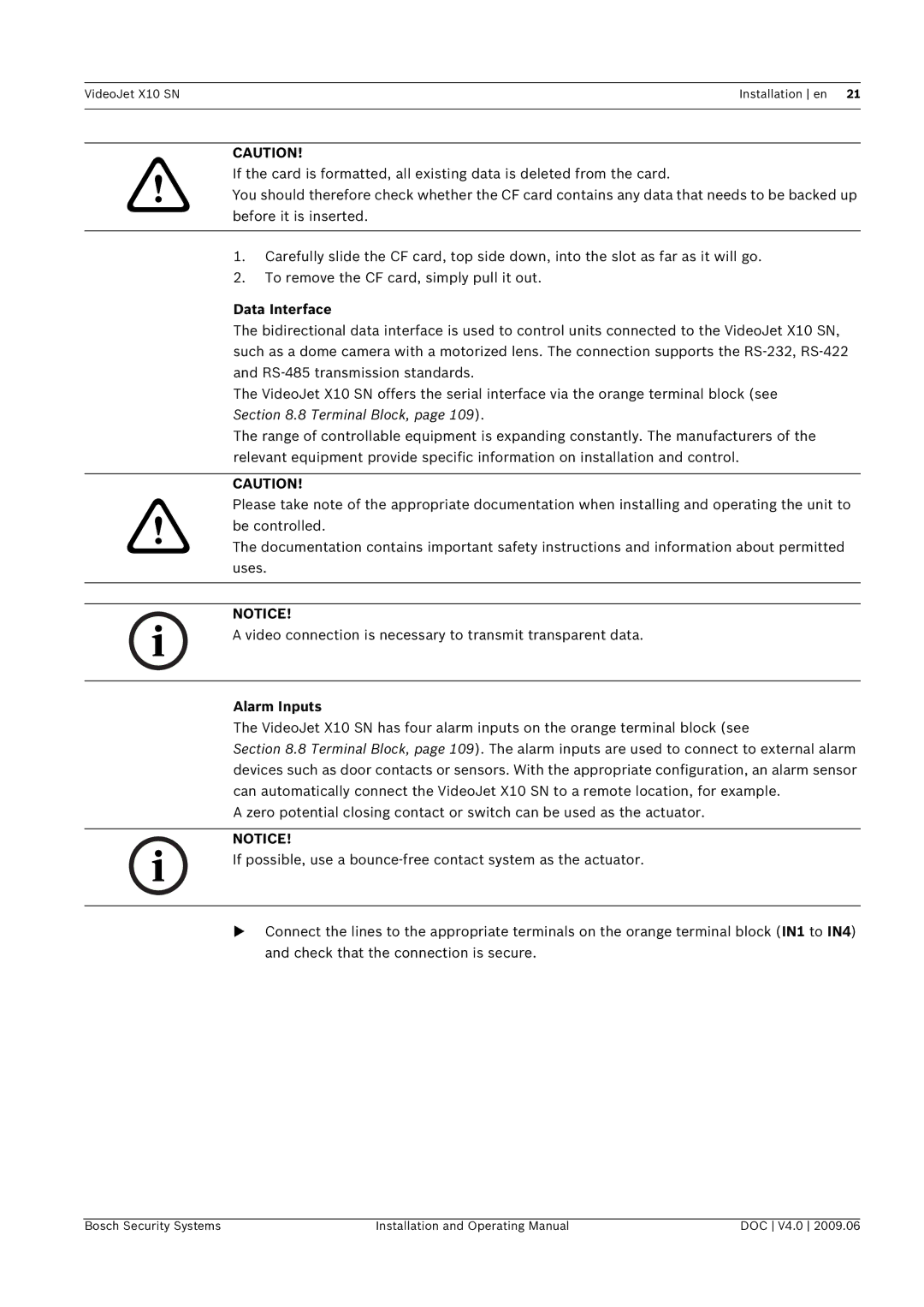
VideoJet X10 SN | Installation en 21 |
|
|
CAUTION!
!If the card is formatted, all existing data is deleted from the card.
You should therefore check whether the CF card contains any data that needs to be backed up before it is inserted.
1.Carefully slide the CF card, top side down, into the slot as far as it will go.
2.To remove the CF card, simply pull it out.
Data Interface
The bidirectional data interface is used to control units connected to the VideoJet X10 SN, such as a dome camera with a motorized lens. The connection supports the
The VideoJet X10 SN offers the serial interface via the orange terminal block (see Section 8.8 Terminal Block, page 109).
The range of controllable equipment is expanding constantly. The manufacturers of the relevant equipment provide specific information on installation and control.
| CAUTION! |
! | Please take note of the appropriate documentation when installing and operating the unit to |
be controlled. | |
The documentation contains important safety instructions and information about permitted | |
| uses. |
|
|
i | NOTICE! |
A video connection is necessary to transmit transparent data. | |
| |
|
|
| Alarm Inputs |
| The VideoJet X10 SN has four alarm inputs on the orange terminal block (see |
| Section 8.8 Terminal Block, page 109). The alarm inputs are used to connect to external alarm |
| devices such as door contacts or sensors. With the appropriate configuration, an alarm sensor |
| can automatically connect the VideoJet X10 SN to a remote location, for example. |
| A zero potential closing contact or switch can be used as the actuator. |
|
|
i | NOTICE! |
If possible, use a | |
| |
|
|
| X Connect the lines to the appropriate terminals on the orange terminal block (IN1 to IN4) |
| and check that the connection is secure. |
Bosch Security Systems | Installation and Operating Manual | DOC V4.0 2009.06 |
